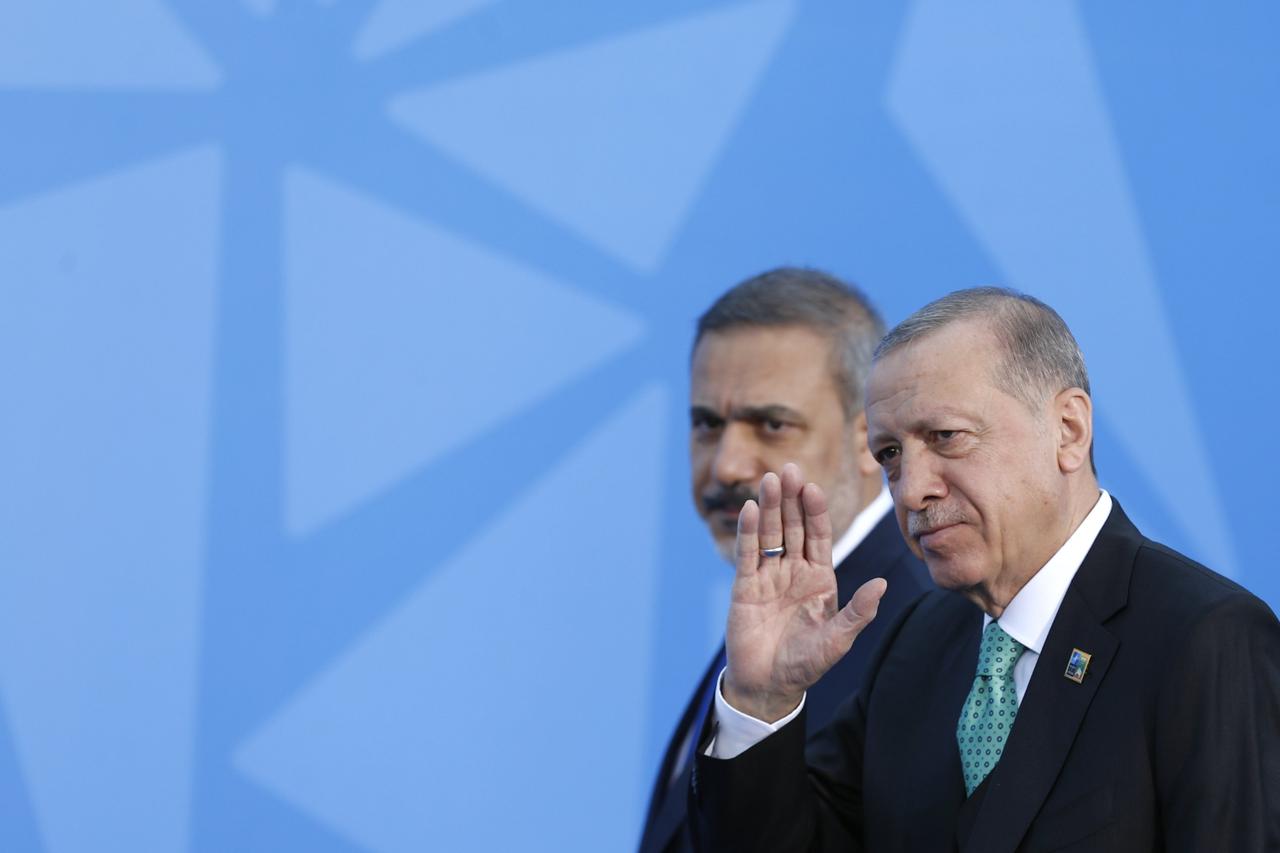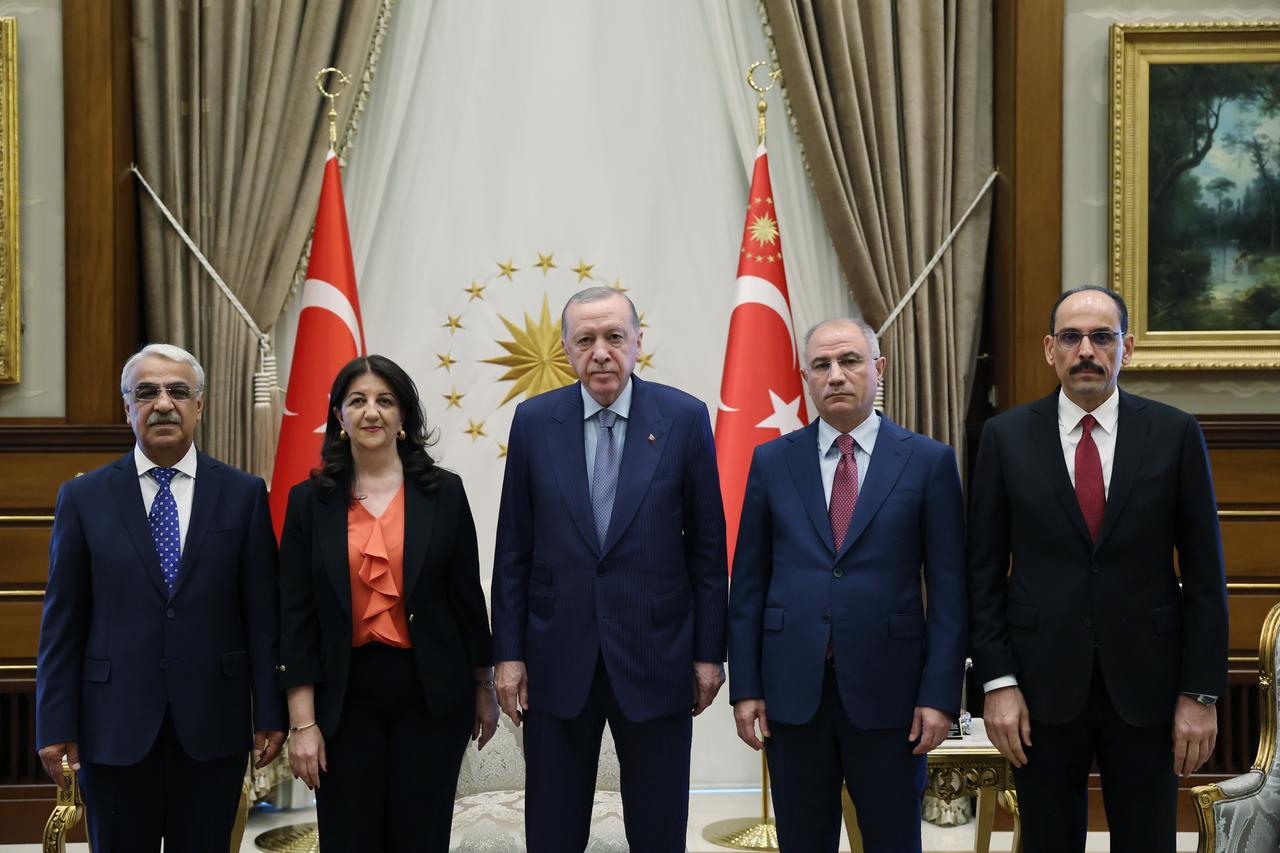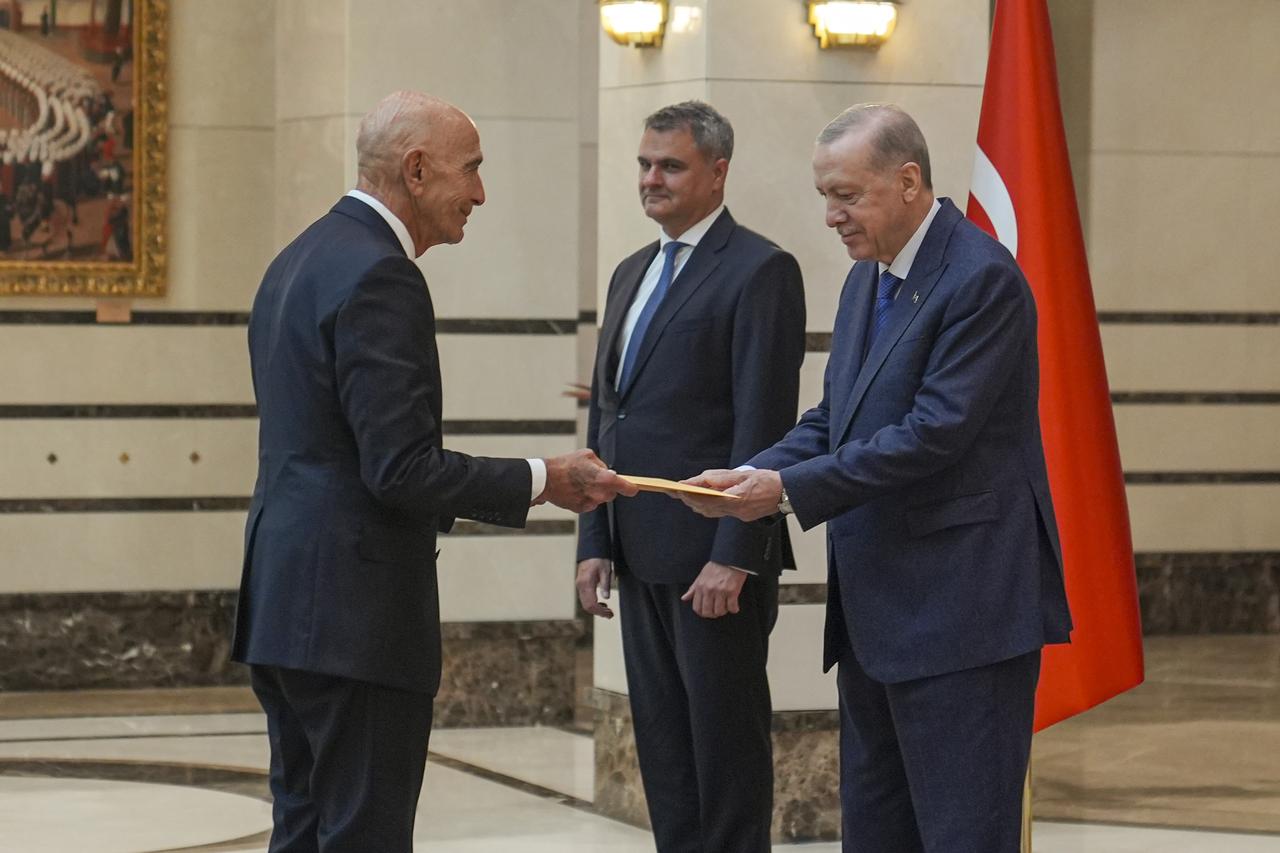
On April 21, 2025, a delegation from the Kurdish-oriented Peoples’ Equality and Democracy Party (DEM Party) visited imprisoned PKK terrorist ringleader Abdullah Ocalan in his prison on Imrali Island.
Days later, portions of the meeting notes, reportedly prepared by DEM officials, were shared online by Necat Zanyar, head of the Lausanne Kurdish Institute. The leaked excerpts quickly stirred political debate for their heavy focus on Israel and Ocalan’s self-declared regional role.
According to the document, Ocalan did not present himself as a figure negotiating with the Turkish state from the outside.
Instead, he described sitting at the same table with state officials, with the shared goal of undermining U.S. and Israeli strategies in the Middle East.
The 13-page document mentions Israel 26 times, reflecting a consistent message: that Israel has offered the Kurds statehood behind closed doors for decades, and that Kurdish statehood remains, in Ocalan’s view, a dangerous project likely to be exploited by foreign powers.
He also claimed that a five-stage plan led by the U.S. and Israel to make Israel the region’s hegemonic power has nearly reached completion, with only Iran and Türkiye left as obstacles. In this context, he allegedly argued that Israel is actively trying to draw Kurdish actors into its sphere of influence.
Some Turkish political scientists, however, argue that these remarks and the very process itself are contradictory and primarily serve a domestic political agenda.
Others see them as a reflection of deeper regional shifts, suggesting that the Middle East, especially after the recent U.S. strike on Iran, is moving beyond proxy warfare and entering a phase of direct confrontation.

While the meeting notes generated interest, analysts in Türkiye are divided over their broader meaning. One camp sees Ocalan’s framing as a repackaged narrative to support internal political shifts. Another argues that the analysis reflects ongoing realignments in a region transitioning from indirect conflicts to more overt confrontations.
The long-standing public perception in Türkiye is that regional militant groups such as the PKK and the SDF operate as proxies for global powers.
Terrorist Ocalan’s assessment also places these Kurdish forces in the crosshairs of external competition. The terror group in Iraq, he claims, survives under Iranian influence, while the SDF has grown increasingly dependent on Israeli support in Syria.
On the other hand, however, U.S. Ambassador Tom Barrack once again emphasized support for integrating the SDF into Syria’s political structure, as it is known that the Trump administration has a different projection on Syria in mind than their Israeli counterparts.

Political analyst Burak Bilgehan Ozpek questions the strategic logic and the narrative in presenting Ocalan as a key actor working with the Turkish state to counter Israeli regional ambitions. “If you are a group like the SDF, alienating the one regional actor—Israel—that still offers diplomatic support does not make sense,” he noted.
Ozpek highlighted the inconsistency in portraying Ocalan as a statesman safeguarding Türkiye’s national interests. “This is the same figure who once ordered attacks on civilians, including infants,” he reminded. “Now we’re asked to believe he is negotiating for the republic.”
Ozpek also pointed to past actions, such as the Peoples’ Democratic Party (HDP) co-chair Selahattin Demirtas visiting Moscow right after Türkiye shot down a Russian jet in 2015, an attempt, he argued, to leverage foreign pressure against Ankara.
Furthermore, Ozpek also took issue with how domestic political shifts are being framed as foreign policy necessities. He believes that “the DEM Party was criminalized under the banner of counterterrorism.”
“Now reconciliation with Ocalan is being justified as necessary for national interest. This is narrative flexibility, not strategy,” he said.
According to Ozpek, Israel’s regional assertiveness is now being misused to legitimize domestic political projects that have little to do with actual threats or alliances.

On the other hand, former MP and commentator Ufuk Uras views the peace effort and the prospect of disarming the PKK not just as internal political calculus but as a response to changing regional circumstances.
He believes the "Terror-Free Türkiye" narrative is part of a deeper response to the post-proxy war phase in the Middle East. "With the U.S.-Iran confrontation and broader geopolitical fatigue, many external powers are retreating from indirect conflicts."
Kurdish groups, he suggests, no longer benefit from the same degree of international sponsorship they once did. In this evolving environment, Israel’s Gaza policies have created reputational risks for any actor seen as cooperating too closely with them. “No one wants to be perceived as Israel’s subcontractor,” he said.
Uras sees Türkiye's outreach to Kurdish factions as an attempt to offer an alternative to other partnerships. He interprets the process not as an ideological realignment but as a search for rational regional integration, a political normalization based on shared interest.
He also cautions against reading too much into historical ties between Ocalan and Israel.
"The past alignments were circumstantial alignments, not enduring partnerships. The shifting ground now demands more sustainable and regionally acceptable configurations."
Türkiye, he suggests, may be offering that alternative, particularly at a time when the old proxies are running out of patrons.
Despite all reservations, the opposition in Türkiye appears to support the “Türkiye without Terror” project. Regardless of whether they fully embrace the narrative or differ in threat perceptions, the government’s initiative currently includes backing from opposition parties.